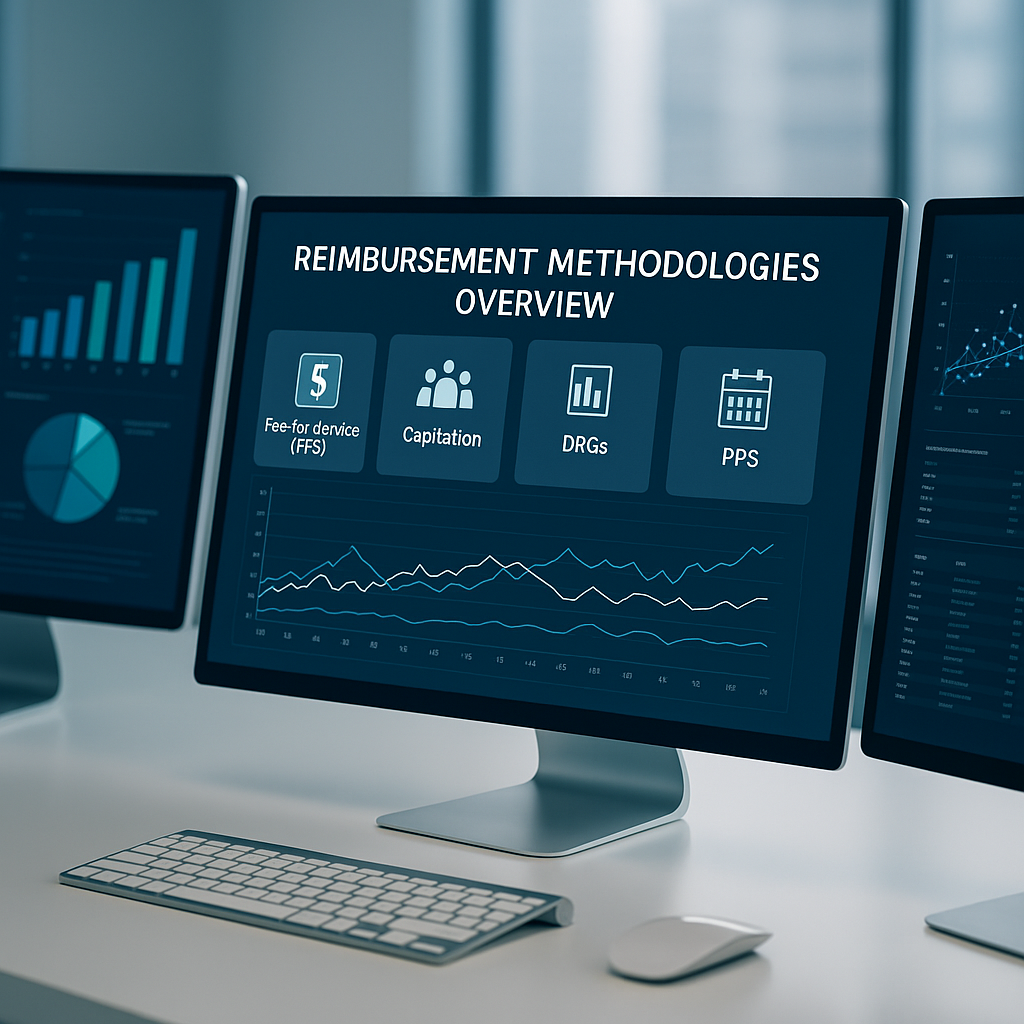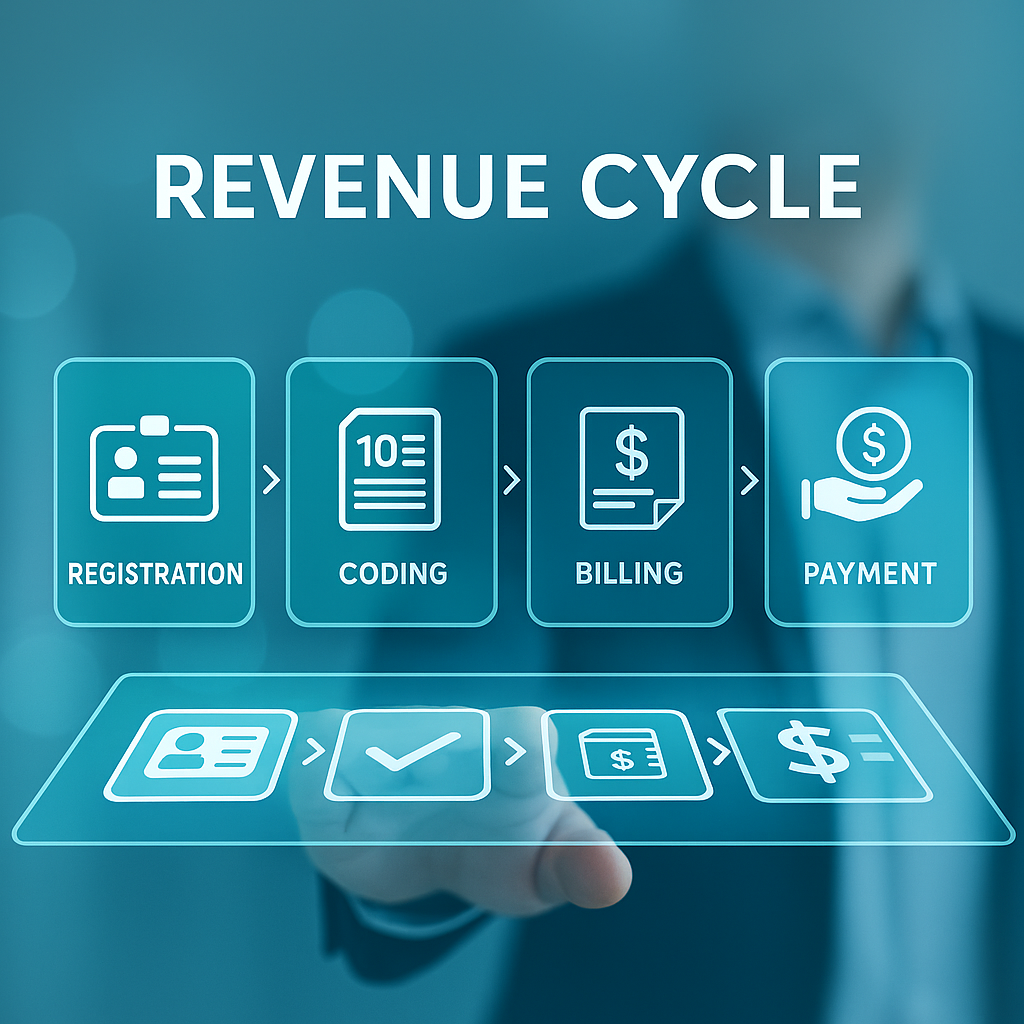
Healthcare Reimbursement: An Overview
$15.00Format: E-course
Duration: Approx 60 min
Instructors: CORAL MED
Learning Credits: 0.25 CEU
*This course was updated on Aug 18, 2025.
Description
Healthcare Reimbursement: An Overview
This Unit course provides an overview of how healthcare services are converted into financial transactions within the U.S. reimbursement system. Learners explore key terminology, payment processes, and the roles of major stakeholders such as patients, payers, and providers. The unit examines major reimbursement models—fee-for-service, capitation, and bundled payments highlighting their impact on cost, access, and provider behavior. Emphasis is placed on the importance of accurate coding, thorough documentation, and adherence to payer policies. By the end, students gain a foundational understanding of the healthcare financial ecosystem and how effective reimbursement practices ensure organizational sustainability, compliance, and quality patient care.
By the end of this course the learner will be able to define revenue cycle phases, identify stakeholders, explain KPIs, and apply ethical billing practices. By the end of this unit, learners will be able to:
1.1.1 Define key concepts of healthcare reimbursement.
1.1.2 Describe traditional and emerging payment models (FFS, DRG/APC, VBR).
1.1.3 Interpret payer contracts and explain their influence on provider revenue.
1.1.4 Analyze the impact of reimbursement models on healthcare operations.
1.1.5 Apply reimbursement formulas to sample case studies.
1.1.6 Evaluate alignment of payment models with compliance requirements.
Upon successful completion, learners will be able to:
-
Explain how reimbursement systems finance healthcare delivery.
-
Differentiate between payment methodologies and identify when each applies.
-
Evaluate how payer mix and contracts affect revenue cycle outcomes.
-
Apply reimbursement calculations to real-world healthcare scenarios.
-
Demonstrate awareness of compliance and ethical considerations in reimbursement
Learners will be able to analyze RCM processes, apply compliance in billing, and evaluate performance using KPIs and metrics.
-
Basic knowledge of healthcare systems and terminology.
-
Recommended completion of Foundations of Healthcare Administration (or equivalent experience).
All learning events delivered through the Coral Plus Learning Management System (LMS) are governed by the following Course Policies and Expectations. Participation in a Coral MED learning event constitutes the learner’s agreement to comply with these policies. These expectations are designed to ensure a professional, respectful, secure, and effective learning environment consistent with the IACET 2018 Standard.
Participation and Engagement
Learners are expected to actively participate in all required learning activities, including modules, webinars, discussions, and assessments. For asynchronous courses, participation is verified through LMS activity logs, module completion, and assessment submission. For synchronous sessions, learners are encouraged to join several minutes early to address any technical issues and ensure full participation.
Registration and Access
Participants must register in advance to receive access to the learning event. Access links, passwords, and login credentials—when applicable—are provided securely to registered participants only and must not be shared. Unauthorized access or distribution of access credentials is prohibited.
Technology and Technical Readiness
Learners are responsible for ensuring they have a stable internet connection, compatible devices (computer, tablet, or smartphone), and recommend web browsers to support the learning experience. A microphone and webcam may be required for interactive sessions. Learners should test audio and video settings prior to the start of the session to minimize disruptions.
Webinar Delivery and Recording
Live webinars may be recorded for educational and quality assurance purposes. Recorded sessions may be made available to registered participants following the learning event. Recordings are intended solely for educational use and remain the intellectual property of Coral MED Management Institute.
Assessment and Timely Completion
Learners must complete all required assessments, evaluations, and learning activities within the designated course timeframe to be eligible for CEUs or certificates of completion. Late or incomplete submissions may result in ineligibility for credit unless prior arrangements have been approved.
Academic Integrity and Professional Conduct
Learners are expected to demonstrate honesty, integrity, and professionalism throughout the learning event. Plagiarism, misrepresentation of work, unauthorized collaboration, or falsification of records is prohibited. Respectful conduct is required in all learning environments, including virtual discussions and live sessions.
Privacy, Confidentiality, and Data Protection Policy
Learners must adhere to all privacy and confidentiality requirements, and applicable data protection regulations. Participants should not share personal, patient, or confidential information during learning activities, discussions, or webinars. Any proprietary or sensitive information encountered during the course must be handled in accordance with Coral MED’s confidentiality and data protection policies. All learner information including enrollment data, grades, and records—is maintained in secure systems compliant with IACET 8.6 and federal privacy standards (FERPA and HIPAA, as applicable). Information is used solely for educational administration and reporting. No personal data will be released without written consent.
Learning Environment and Schedule
A detailed agenda will be provided in advance of the learning event. Sessions will adhere to the published schedule to ensure all planned topics are covered. Time will be allocated for questions, discussion, and learner interaction as appropriate to the course format.
Support and Technical Assistance
Technical support contact information or helpdesk access will be provided during live sessions and within the LMS. Common technical issues and troubleshooting guidance may be addressed at the beginning of the session. Learners are encouraged to seek assistance promptly if issues arise.
Learning Resources
Relevant learning materials, such as presentation slides, recordings, reference documents, or additional reading resources, may be shared with registered participants following the learning event. These materials are provided for personal educational use only.
Proprietary and Confidential Information Policy
Certain learning modules, case studies, or demonstrations may contain proprietary or confidential information belonging to Coral MED or its partners. Learners and instructors are required to maintain the confidentiality of such information and may not share, disclose, or reproduce any proprietary content outside the course environment. All participants must adhere to nondisclosure and confidentiality obligations outlined in enrollment agreements and faculty contracts. Violation of this policy may result in disciplinary action, loss of CEU credit, or legal remedies where applicable.
Intellectual Property Rights Policy
All course materials including manuals, slides, multimedia, simulations, assessments, and software—are the intellectual property of Coral MED Management Institute or the respective content author. These materials are protected by U.S. copyright law and international treaties. Learners receive a non-exclusive, non-transferable license to access and use the materials solely for personal educational purposes. Copying, recording, redistributing, or commercial use of Coral MED content without prior written authorization is strictly prohibited. Faculty and subject-matter experts retain ownership of their original intellectual contributions, subject to Coral MED’s right to use and distribute them within its educational programs under agreed terms.
Non-Discrimination and Equal Opportunity Policy
Coral MED Management Institute is committed to providing an inclusive learning environment that is free from discrimination, harassment, and retaliation. Admission, participation, assessment, and certification decisions are made without regard to race, color, national origin, ancestry, gender, gender identity or expression, sexual orientation, disability, age, religion, marital status, veteran status, or any other legally protected status. Any learner or staff member who believes they have been subject to discrimination or harassment should report the concern in writing to the Compliance & Equity Officer for prompt review and resolution.
Code of Conduct and Equity Policy
Coral MED is committed to creating a learning environment that promotes respect, inclusion, and cultural sensitivity. Harassment, discrimination, or disruptive behavior of any kind will not be tolerated. Violations may lead to removal from the course and reporting to appropriate authorities if warranted.
-
Healthcare administrators seeking to strengthen their financial literacy.
-
Billing and coding specialists preparing for advanced reimbursement roles.
-
Compliance officers and auditors overseeing revenue cycle practices.
-
Clinicians transitioning into administrative or leadership positions.
-
Students pursuing careers in health information management, finance, or healthcare policy.
Revenue cycle specialists, billing/coding teams, practice administrators


